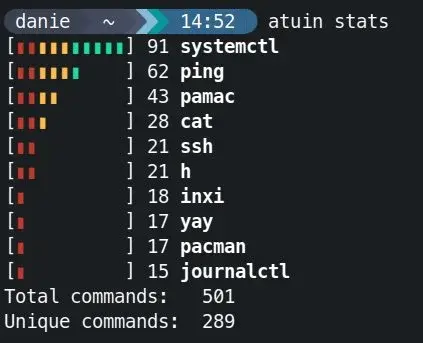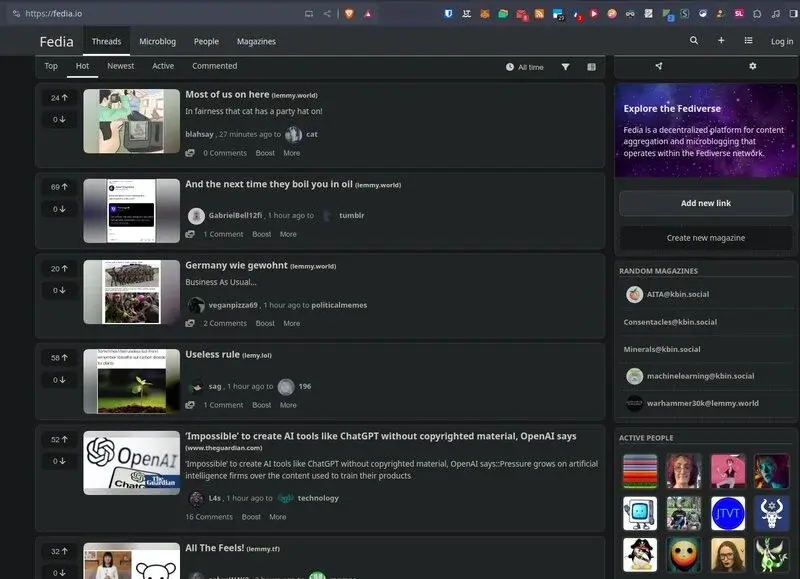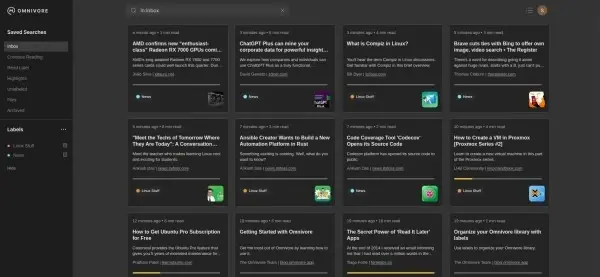QOwnNotes (https://github.com/pbek/QOwnNotes) may be an option as it is pure Markdown and need not have both the code and preview windows open. I used it before moving to Obsidian. It has some options to customise its window views, but it is a long time since I used it, so not sure if it has that block mode you want. Logseq I seem to recall worked with blocks as it is an Outliner that does save in Markdown format, but I did not like that the outline blocks added characters to the file format that slightly broke compatibility with standard Markdown formats. But blocks was Logseq's strength.
GadgeteerZA
Although it says it "imports Markdown" so not sure if it is an actual Markdown format editor.
I switch between Main, Recording, and Gaming. Apart from backgrounds I have some apps specifically visible in that Activity, and also have a filtered desktop folder for each (each Activity has files that are only relevant to that activity). I did a video about my switching at https://www.youtube.com/watch?v=wq-7KEeH7_U and how it differs from virtual desktops.
I only choose to buy hardware that I can connect to Home Assistant, because I can still use it if the company goes bust or no longer supports it. I have one dashboard in HA that manages all my different devices. Point is, I still buy the hardware and the sale is made. I'm not going to buy 5 different standard products which must all be managed through separate apps. Open standards can open up to a much bigger market. There is good reason why so many OEMs opened up to the Matter protocol.
But as I say, I check first for compatibility, then I narrow my choices from there. So yes, right now your company's IOT product won't get onto my radar. Been there, done that, and got a handful of dead paperweights to show for it.
Ah, see it now in results - never heard that before. We normally speak of toppings or stuffings.
It very much is, but British English so wondering if that was a US term
Thanks, no, I surrendered ;-) but still can't figure out why that 6-letter word relates to potato specifically. Just not something I can really relate to potato specifically.
Nope I bombed out - no idea what the association of the 6 letter word was with potato
Good point on OpenPGP. I suppose I already do my mails with OpenPGP in Proton Mail (using my own key that is already uploaded). But something to keep in mind yes.
Seems it fits on a lanyard string from what I see of the other photos. A keyring is thicker and would put twisting force on it, yes. So, seems the lanyard type connector may be better for long term use.



I was thinking more of its native file format it saves to. It said "import from Markdown" which seemed to suggest it is not saving all in Markdown (otherwise would have said opens and saves to). But maybe it is just badly worded.